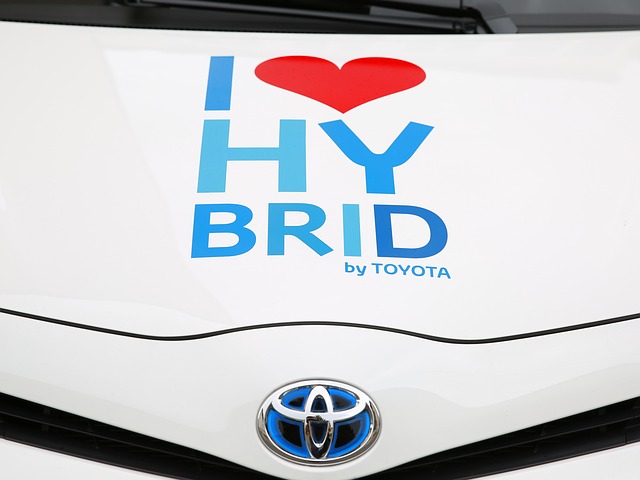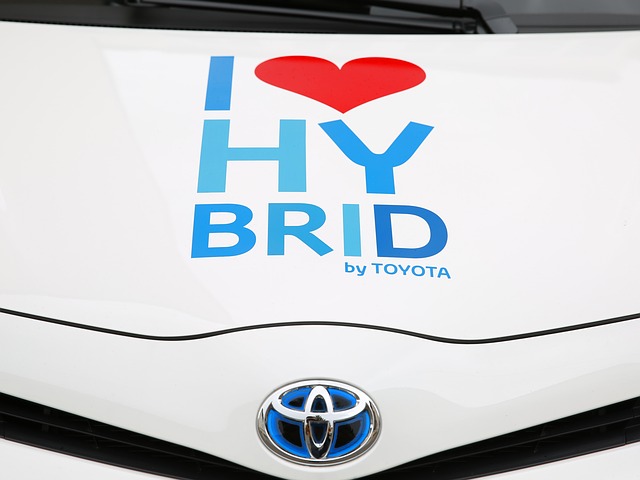
pxhere
Toyota stops producing passenger cars with diesel engines. The production will be curtailed this year, said Johan van Zyl, president of the European branch of this Japanese corporation, at the Geneva-hosted international motor show. There, the head of Fiat Chrysler Sergio Marchionne announced an intention of the Italian-American automaker to "drastically reduce" the dependence on the diesel.
Automakers change production plans
Thus, the decline of diesel technology, which was noticed in 2016-2017 during the Dieselgate scandal, is turning into an obvious trend. Large companies are already making specific production plans in Europe (there’s no demand cars with diesel engines in other continents). Simultaneously, the transition to the production of cars with electric and especially hybrid engines is accelerating.
"We will concentrate on hybrids," Toyota Motor Europe CEO Johan van Zyl said in Geneva. Director for Strategic Development of German concern Daimler Wilko Stark notes "a sharp increase in demand for plug-in hybrid in Europe." And Swedish company Volvo Car announced last summer that it will only produce hybrids and electric vehicles in 2019.
Klaus Rosenfeld, chairman of the board of the German company Schaeffler, a major component supplier for the global automotive industry, is confident that "hybridization," as he puts it, "will play a big role in the coming years." At the same time, he stresses: "We do not consider hybrids to be just a transitional technology." In other words, he proceeds from the premise that cars that have both a gasoline and an electric motor will be in demand even after creation of a comprehensive network of electric cars chargers and a substantial increase in their mileage. Hybrids are especially advantageous for suppliers of automotive manufacturers, since they provide orders for assemblies and parts for not only one but two motors.
Diesel surrenders positions in Germany, Great Britain and France
The declining demand for diesel engines and the growing interest in hybrids is evidenced by sales statistics on the European automotive market in 2017 and in the first two months of 2018. Last year, Europeans for the first time since 2009 bought more new cars with gasoline than with diesel engines.
In the approximately 3% German market (the largest in the EU) the share of diesel engines among new cars sold grew from 45.9% to 38.8%. Diesel demand fell by 17% in the already declining UK market; a similar trend is observed in France. It looks like the diesel is not popular in the three largest automotive markets of the EU, anymore.
In early 2018, this trend accelerated even more. In the growing German automobile market, diesel sales fell 17.6% in January compared to January of last year, in February their share dropped to 32.5%. The demand for diesel engines fell by 24.9% in January-February in the UK market. At the same time, its market share for the year decreased from 45% to 35.6%.
"We see large-scale shifts in the market: avoiding diesel cars and reorienting to gasoline ones," says Peter Fuß, an expert on the automobile market of Ernst & Young consulting company, speaking of Germany. After the Federal Administrative Court in Leipzig stated on February 27 that the authorities of the cities of the Federal Republic of Germany have the right to prohibit the entry of diesel cars to save environment; this trend in the German car market will undoubtedly grow even stronger in the future.
Toyota declares an ambitious goal in Geneva
There is another trend gaining momentum against this background: for now, sales of cars with alternative engines and, above all, hybrids, are growing from a very low level, but at a very rapid rate. In Germany, the share of hybrids amounted to 2.5% in 2017. The Germans purchased a total of 84,675 new cars with hybrid engines of various types (an increase of 76.4%), including 29,436 plug-in hybrids (an increase of 114.2%).
Plug-in Hybrid Electric Vehicles (PHEV) are considered to be the most advanced from the technical and ecological point of view: they are equipped with a large battery, which is charged not only during the car's movement, but also directly through the electric network, which significantly reduces fuel consumption. Therefore, plug-in hybrids can be considered electric vehicles with an auxiliary gasoline engine.
In January 2018, sales of hybrids increased in Germany in comparison with January of the previous year by 95%, including plug-in hybrids - by 87.2%. In February, the growth rates were 63.1% and 77.3%, respectively, and the total share of hybrids exceeded 3%. In the UK, the share of cars with alternative engines, among which the bulk is made up of all sorts of hybrids, exceeded 5% in sales of new cars in January and February.
Toyota, the world's second-largest automaker and pioneer in the hybrids market, is now betting on this growing trend: the first production model, Prius, was assembled in 1997. In 2017, hybrids accounted for 41% of cars produced by the Japanese giant around the world, and diesel engines - less than 10%.
In the near future, they will not exist at all, except for such pickups and SUVs as Hilux and Land Cruiser: they will continue to install diesel engines at a request.
source: dw.de
Automakers change production plans
Thus, the decline of diesel technology, which was noticed in 2016-2017 during the Dieselgate scandal, is turning into an obvious trend. Large companies are already making specific production plans in Europe (there’s no demand cars with diesel engines in other continents). Simultaneously, the transition to the production of cars with electric and especially hybrid engines is accelerating.
"We will concentrate on hybrids," Toyota Motor Europe CEO Johan van Zyl said in Geneva. Director for Strategic Development of German concern Daimler Wilko Stark notes "a sharp increase in demand for plug-in hybrid in Europe." And Swedish company Volvo Car announced last summer that it will only produce hybrids and electric vehicles in 2019.
Klaus Rosenfeld, chairman of the board of the German company Schaeffler, a major component supplier for the global automotive industry, is confident that "hybridization," as he puts it, "will play a big role in the coming years." At the same time, he stresses: "We do not consider hybrids to be just a transitional technology." In other words, he proceeds from the premise that cars that have both a gasoline and an electric motor will be in demand even after creation of a comprehensive network of electric cars chargers and a substantial increase in their mileage. Hybrids are especially advantageous for suppliers of automotive manufacturers, since they provide orders for assemblies and parts for not only one but two motors.
Diesel surrenders positions in Germany, Great Britain and France
The declining demand for diesel engines and the growing interest in hybrids is evidenced by sales statistics on the European automotive market in 2017 and in the first two months of 2018. Last year, Europeans for the first time since 2009 bought more new cars with gasoline than with diesel engines.
In the approximately 3% German market (the largest in the EU) the share of diesel engines among new cars sold grew from 45.9% to 38.8%. Diesel demand fell by 17% in the already declining UK market; a similar trend is observed in France. It looks like the diesel is not popular in the three largest automotive markets of the EU, anymore.
In early 2018, this trend accelerated even more. In the growing German automobile market, diesel sales fell 17.6% in January compared to January of last year, in February their share dropped to 32.5%. The demand for diesel engines fell by 24.9% in January-February in the UK market. At the same time, its market share for the year decreased from 45% to 35.6%.
"We see large-scale shifts in the market: avoiding diesel cars and reorienting to gasoline ones," says Peter Fuß, an expert on the automobile market of Ernst & Young consulting company, speaking of Germany. After the Federal Administrative Court in Leipzig stated on February 27 that the authorities of the cities of the Federal Republic of Germany have the right to prohibit the entry of diesel cars to save environment; this trend in the German car market will undoubtedly grow even stronger in the future.
Toyota declares an ambitious goal in Geneva
There is another trend gaining momentum against this background: for now, sales of cars with alternative engines and, above all, hybrids, are growing from a very low level, but at a very rapid rate. In Germany, the share of hybrids amounted to 2.5% in 2017. The Germans purchased a total of 84,675 new cars with hybrid engines of various types (an increase of 76.4%), including 29,436 plug-in hybrids (an increase of 114.2%).
Plug-in Hybrid Electric Vehicles (PHEV) are considered to be the most advanced from the technical and ecological point of view: they are equipped with a large battery, which is charged not only during the car's movement, but also directly through the electric network, which significantly reduces fuel consumption. Therefore, plug-in hybrids can be considered electric vehicles with an auxiliary gasoline engine.
In January 2018, sales of hybrids increased in Germany in comparison with January of the previous year by 95%, including plug-in hybrids - by 87.2%. In February, the growth rates were 63.1% and 77.3%, respectively, and the total share of hybrids exceeded 3%. In the UK, the share of cars with alternative engines, among which the bulk is made up of all sorts of hybrids, exceeded 5% in sales of new cars in January and February.
Toyota, the world's second-largest automaker and pioneer in the hybrids market, is now betting on this growing trend: the first production model, Prius, was assembled in 1997. In 2017, hybrids accounted for 41% of cars produced by the Japanese giant around the world, and diesel engines - less than 10%.
In the near future, they will not exist at all, except for such pickups and SUVs as Hilux and Land Cruiser: they will continue to install diesel engines at a request.
source: dw.de


















